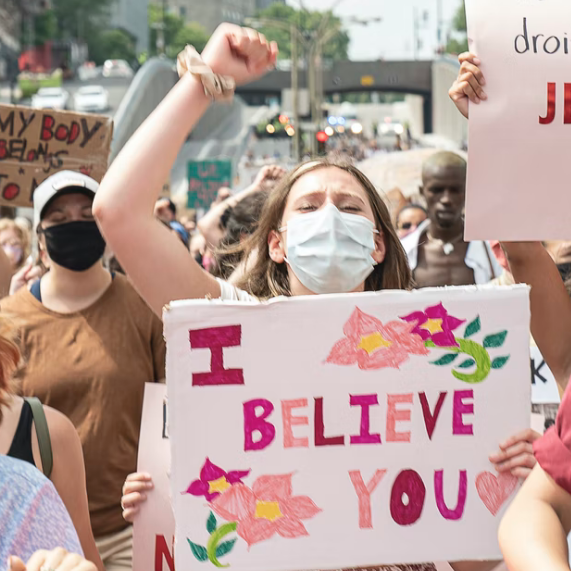
I worked with the amazing journalists at Type Investigations, The Intercept and Retro Report to tell the story of the women who fought back after being harassed on Wall Street in the 1990s. Watch the segment from tonight’s PBS Retro Report here.

I worked with the amazing journalists at Type Investigations, The Intercept and Retro Report to tell the story of the women who fought back after being harassed on Wall Street in the 1990s. Watch the segment from tonight’s PBS Retro Report here.
Women filed a wave of lawsuits and arbitrations against financial firms in the 1990s and early 2000s, disgusted by a culture of rampant sexual harassment and gender discrimination. The biggest cases of that era collectively drew thousands of participants in class actions and led to large settlements including $150 million against Smith Barney and $250 million against Merrill Lynch.
At a time when the long-term consequences of #MeToo on women’s careers is an open questions, I looked at court records, tracked down plaintiffs and spoke with a dozen employment lawyers to see how things had turned out for the women — and how things had turned out for the men who allegedly harassed them. My findings were sobering. You can read my story today for The Intercept here.
A woman who is sexually harassed at work is six and a half times more likely to change jobs than a woman who is not. So you might think that, a year and a half into the #MeToo movement, sexual harassment would be a front-burner issue for the people paid to diversity Wall Street.
Yet at a two-day conference of diversity experts in the securities industry in New York in late May, not one of the seven panels addressed the challenge of sexual harassment in the workplace. I wrote about it in my latest piece for The Intercept. You can read it here.
#MeToo is getting expensive for the insurance companies who issue policies to errant companies. I wrote about it today in this piece for The Intercept.
I looked into the internal investigations that companies do when employees complain about sexual harassment and other workplace inequities. You can read the piece in The New York Times here.
I was on Women’s Media Center Live with Robin Morgan today, talking about my investigation of 30 years of of sexual harassment complaints by women on Wall Street. You can listen to the interview here.
For victims of sexual harassment on Wall Street, the case of Kathleen Mary O’Brien was a bad omen.
In 1988, O’Brien, then a stockbroker at Dean Witter Reynolds, filed the earliest sexual harassment case we could find in a public database maintained by the Financial Industry Regulatory Authority, Wall Street’s self-governing organization, which is overseen by the Securities and Exchange Commission.
The year before, O’Brien had sued Dean Witter in Los Angeles Superior Court, but the brokerage firm successfully argued that she was legally bound to use Wall Street’s closed-door arbitration forum, then run by a FINRA predecessor, the National Association of Securities Dealers. The arbitrators’ decision in her case would turn out to be a common one in harassment cases over the following years: The claim was dismissed. The panel, offering no explanation as to how it came to the decision, charged her $3,000 in arbitration fees.
O’Brien’s case is one of 98 sexual harassment or hostile work environment claims and counterclaims made by women that The Intercept and the Investigative Fund found in the FINRA database over the past 30 years. You can read the full story here.
Among the business sectors largely absent from the current deluge of sexual harassment revelations is the financial services industry, a behemoth that employs 3.2 million people in the United States and is infamous for abuse and discrimination targeting women. In my story for The Intercept, I talk about women’s fate in finance and the reasons that most stay quiet. You can read it here.